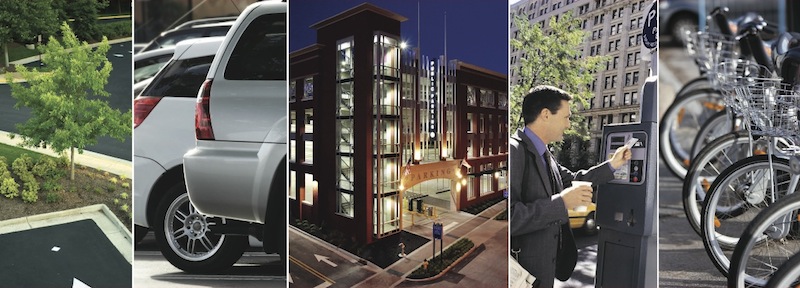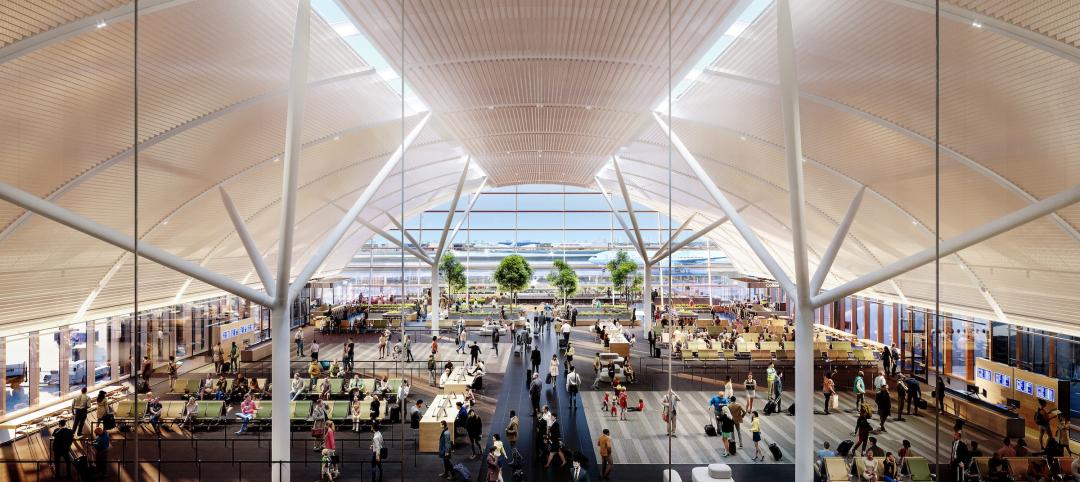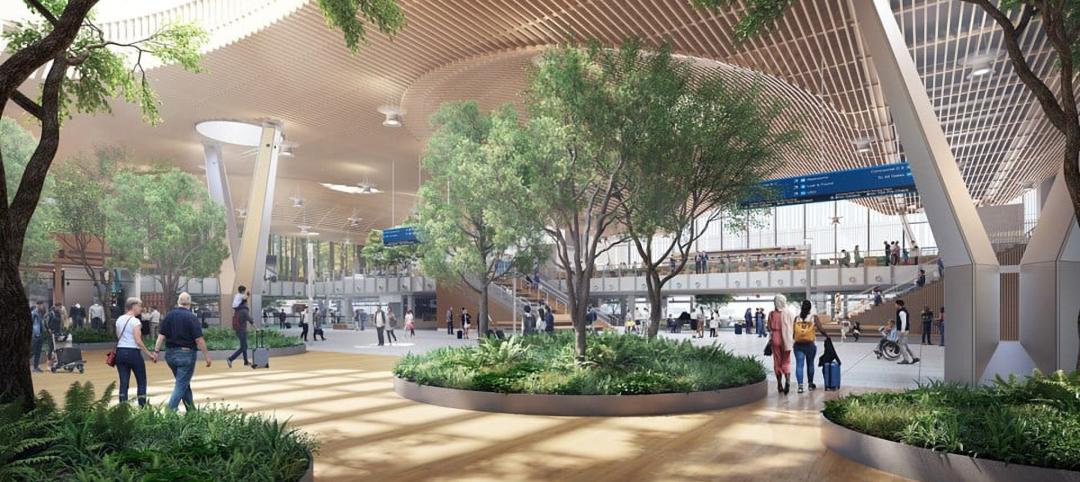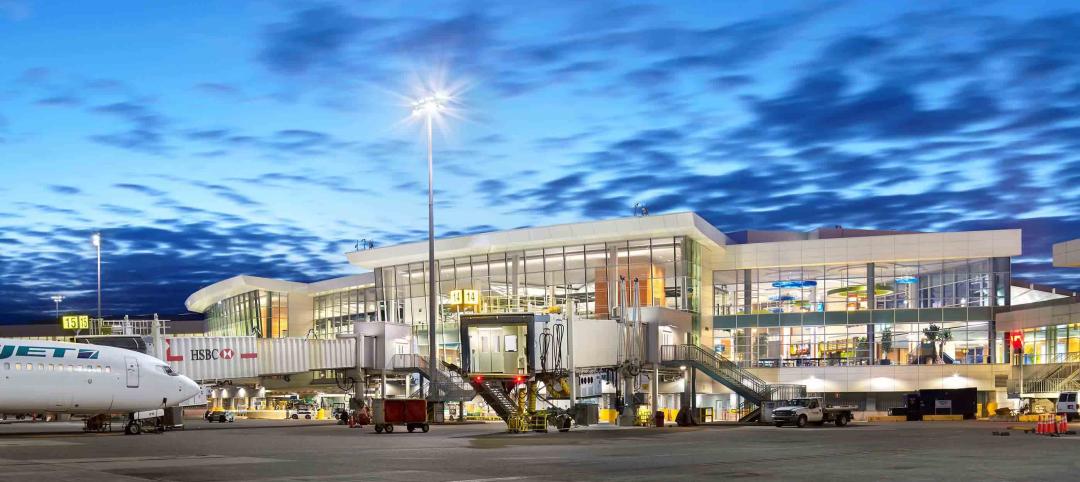According to the results of a just-released survey, the country is undergoing a parking revolution as the industry embraces a variety of new technologies that make it easier for people to find and pay for parking, and for parking authorities to better manage it.
The 2013 Emerging Trends in Parking survey was conducted among members of the International Parking Institute (IPI) and released at the 2013 IPI Conference & Expo, May 19-22. Cities leading in parking innovation include San Francisco; Seattle; New York; Los Angeles; Washington, D.C.; Portland, Ore; Miami; Houston; Boston; Denver; Pittsburgh; and Tampa. Dozens of other cities were identified.
Survey highlights include:
1. Smartphones: Solution to the "space race?"
Topping the list of trends in the $30 billion parking industry is the "move toward innovative technologies to improve parking access control and payment automation," cited by 59 percent of respondents. Another top trend is "real-time communication of pricing and availability to mobile/smart phones" (52 percent).
Both trends are evident in San Francisco's federally-funded SFpark pilot project, which supplies real-time information on the availability and cost of on- and off-street parking, drastically reducing driver circling while hunting for open spaces, congestion, and double-parking.
According to San Francisco County Transportation Authority Park Manager Jay Primus, the city also may be the first in the U.S. to quantify the number of available parking spaces in all public lots, garages, and city blocks. Seattle's new electronic parking guidance system uses dynamic real-time message signs and web information to direct people to available off-street parking at six downtown garages.
2. Payment options continue to expand
The second leading trend is the demand for electronic (cashless) payment, with cities such as Washington, D.C., Pittsburgh, Houston, and Miami, among others, incorporating pay-by-phone programs. Acclaimed as the world's most successful of its type, the D.C. program has earned 550,000 customers and accounts for 40 percent of the city's parking revenues.
About 80 percent of the seven million transactions to date employ smart phones, with payment options that include credit cards, online and mobile money management solutions, and PayPal. Miami and Pittsburgh are among the pioneering cities in incorporating license-plate recognition technology as another means of quick and efficient payment.
3. Taking a smarter business approach
The trends toward "demand for greater parking revenue" (38 percent) and "more public-private partnerships" (24 percent) are demonstrated by Miami's innovative public-private partnerships. Similar programs have been launched in cities such as Houston, where consultants posed the question: "What would a parking program look like if it was managed by Nordstrom?" prompting a focus on parking as an engine for municipal economic development.
4. Green solutions sprouting up
Other notable trends include "collaboration between parking, transportation, and decision makers" (43 percent), "need for improved customer service," (31 percent), and "demand for green/sustainable solutions" (30 percent). Among the technology considered to have the greatest potential in improving sustainability are "guidance systems to enable drivers to find parking faster (and reduce carbon emissions)" (57 percent); "energy-efficient lighting" (55 percent); "encouraging alternative travel" by providing bike storage, car/bike share, access to transit, etc. (42 percent); "accommodating electric-vehicle charging stations: (21 percent), :renewable-energy installations such as solar panels and wind power"; and "innovative water and storm water management systems" (11 percent).
For example, the City of Tampa cut its energy costs in half by upgrading lighting in its parking facilities, joining Miami, Denver, and other cities in offering citywide electric-vehicle charging stations. Miami was among the first U.S. city to partner with a car-share program, which has since taken root in a number of other cities across the country.
Related Stories
AEC Tech | Oct 16, 2024
How AI can augment the design visualization process
Blog author Tim Beecken, AIA, uses the design of an airport as a case-study for AI’s potential in design visualizations.
Airports | Aug 22, 2024
Portland opens $2 billion mass timber expansion and renovation to its international airport
This month, the Portland International Airport (PDX) main terminal expansion opened to passengers. Designed by ZGF for the Port of Portland, the 1 million-sf project doubles the capacity of PDX and enables the airport to welcome 35 million passengers per year by 2045.
Smart Buildings | Jul 25, 2024
A Swiss startup devises an intelligent photovoltaic façade that tracks and moves with the sun
Zurich Soft Robotics says Solskin can reduce building energy consumption by up to 80% while producing up to 40% more electricity than comparable façade systems.
Great Solutions | Jul 23, 2024
41 Great Solutions for architects, engineers, and contractors
AI ChatBots, ambient computing, floating MRIs, low-carbon cement, sunshine on demand, next-generation top-down construction. These and 35 other innovations make up our 2024 Great Solutions Report, which highlights fresh ideas and innovations from leading architecture, engineering, and construction firms.
Airports | Jun 3, 2024
SOM unveils ‘branching’ structural design for new Satellite Concourse 1 at O’Hare Airport
The Chicago Department of Aviation has revealed the design for Satellite Concourse 1 at O’Hare International Airport, one of the nation’s business airports. Designed by Skidmore, Owings & Merrill (SOM), with Ross Barney Architects, Juan Gabriel Moreno Architects (JGMA), and Arup, the concourse will be the first new building in the Terminal Area Program, the largest concourse area expansion and revitalization in the airport’s almost seven-decade history.
Products and Materials | May 31, 2024
Top building products for May 2024
BD+C Editors break down May's top 15 building products, from Durat and CaraGreen's Durat Plus to Zurn Siphonic Roof Drains.
Biophilic Design | May 6, 2024
The benefits of biophilic design in the built environment
Biophilic design in the built environment supports the health and wellbeing of individuals, as they spend most of their time indoors.
Architects | May 2, 2024
Emerging considerations in inclusive design
Design elements that consider a diverse population of users make lives better. When it comes to wayfinding, some factors will remain consistent—including accessibility and legibility.
Airports | Apr 18, 2024
The next destination: Passive design airports
Today, we can design airports that are climate resilient, durable, long-lasting, and healthy for occupants—we can design airports using Passive House standards.
Airports | Feb 13, 2024
New airport terminal by KPF aims to slash curb-to-gate walking time for passengers
The new Terminal A at Zayed International Airport in the United Arab Emirates features an efficient X-shape design with an average curb-to-gate walking time of just 12 minutes. The airport terminal was designed by Kohn Pedersen Fox (KPF), with Arup and Naco as engineering leads.


















